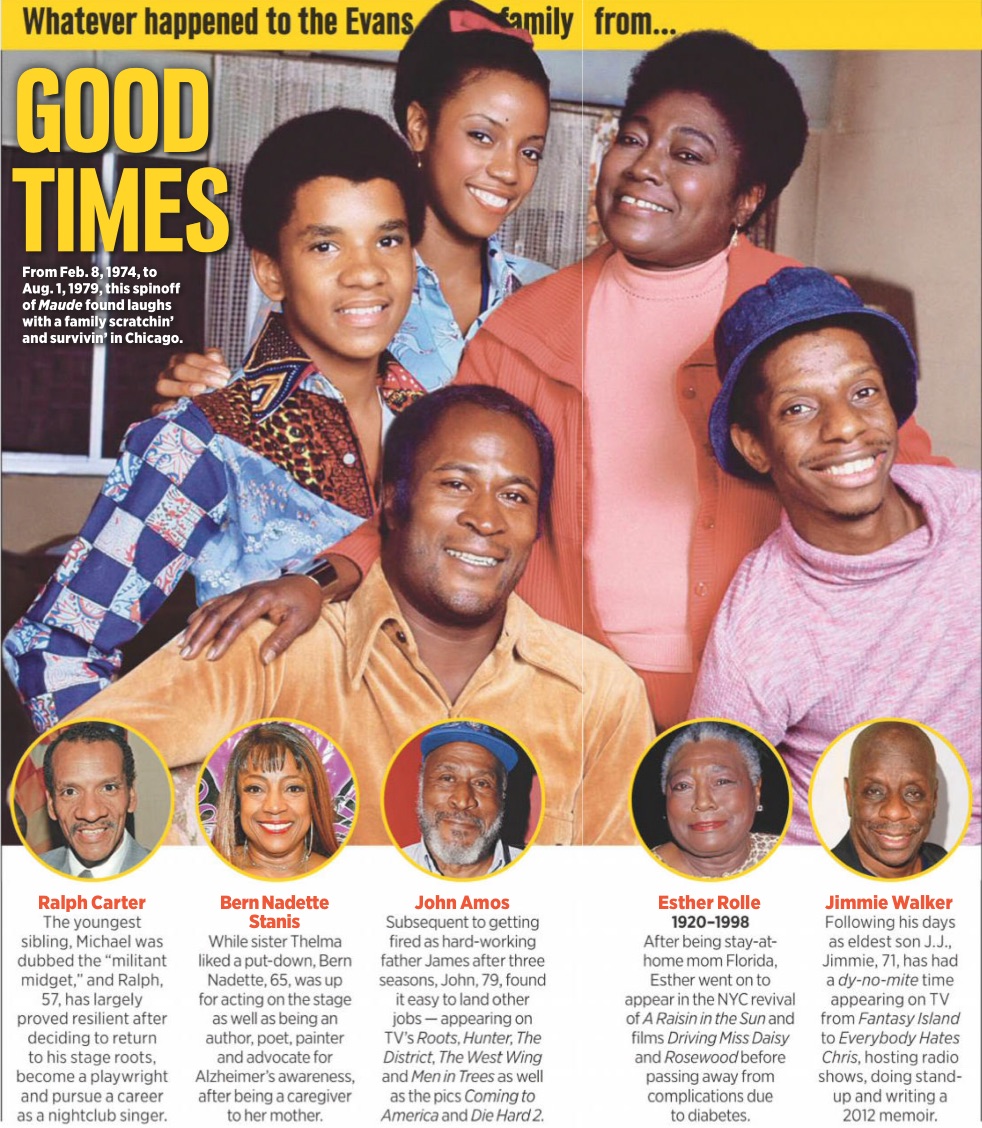Everything You Need To Know About The Good Times Cast
Good Times cast has become an iconic part of American television history since its premiere in the 1970s. This groundbreaking sitcom not only entertained audiences but also addressed social issues such as poverty and family dynamics in a way that was relatable and poignant. The ensemble cast brought life to the characters, creating memorable moments that resonate with viewers even today. In this article, we will explore the cast members of Good Times, their backgrounds, contributions to the show, and the impact they had on television.
As we delve into the lives of the Good Times cast, we will provide an in-depth look at their careers, achievements, and the legacies they left behind. The show itself has a rich history that reflects the struggles and resilience of African American families during the era. Understanding the cast and their roles will give us a clearer picture of the show's significance and its cultural impact.
Join us as we take a nostalgic journey through the world of Good Times, exploring the lives of the talented individuals who made this show a classic in American television. From the heartwarming moments to the serious discussions, the Good Times cast left an indelible mark that continues to influence the industry today.
Table of Contents
- Biography of the Good Times Cast
- Major Cast Members
- Impact of Good Times on Television
- Legacy of the Show
- Conclusion
Biography of the Good Times Cast
Good Times was created by Eric Monte and Mike Evans, and it aired on CBS from 1974 to 1979. The show was set in a Chicago housing project and centered on the Evans family, consisting of Florida, James, J.J., Thelma, and Michael. The cast featured prominent actors who brought authenticity and depth to their roles.
The portrayal of the Evans family was groundbreaking, showcasing a Black family navigating the challenges of poverty while emphasizing love, support, and humor. The show addressed serious issues such as unemployment, racism, and family dynamics, making it a significant part of television history.
Major Cast Members
Esther Rolle
Esther Rolle portrayed the matriarch, Florida Evans, a strong and nurturing mother. Her performance earned her critical acclaim and highlighted the struggles of a single parent trying to raise her children in a challenging environment. Rolle's dedication to representing African American families authentically has made her a respected figure in the industry.
| Name | Esther Rolle |
|---|---|
| Born | November 8, 1920 |
| Died | November 17, 1998 |
| Role | Florida Evans |
John Amos
John Amos played the role of James Evans, the hardworking father of the family. His character represented the struggle of a man trying to provide for his family while facing systemic challenges. Amos's portrayal was praised for its realism and depth, making James a beloved character on the show.
| Name | John Amos |
|---|---|
| Born | December 27, 1939 |
| Role | James Evans |
Jaime Foxx
Jaime Foxx, known for his role as J.J. Evans, brought humor and charm to the show. His character, often recognized for his catchphrase "Dyn-o-mite!", became a cultural icon. Foxx's comedic timing and charisma contributed significantly to the show's popularity.
| Name | Jaime Foxx |
|---|---|
| Born | August 13, 1967 |
| Role | J.J. Evans |
Bernadette Stanis
Bernadette Stanis played Thelma Evans, the only daughter in the family. Her character was strong, intelligent, and ambitious, representing the aspirations of young women during that era. Stanis's performance inspired many viewers and highlighted the importance of education and self-worth.
| Name | Bernadette Stanis |
|---|---|
| Born | December 22, 1953 |
| Role | Thelma Evans |
Impact of Good Times on Television
Good Times made a significant impact on television by breaking stereotypes and presenting a realistic portrayal of Black families. The show addressed issues such as poverty, unemployment, and systemic racism, paving the way for future sitcoms that tackled similar themes.
The show's success also opened doors for more African American actors and writers in the industry. It demonstrated the need for diverse storytelling and representation on screen, inspiring a new generation of creators to tell their stories.
Legacy of the Show
The legacy of Good Times continues to influence television today. Its themes of resilience, family, and community remain relevant, resonating with audiences across generations. The show's characters have become symbols of strength and determination, inspiring viewers to overcome their own challenges.
In recent years, Good Times has seen a resurgence in popularity through reruns and streaming platforms. The show's cultural significance is recognized in discussions about representation in media, and it serves as a reminder of the progress that has been made and the work that still needs to be done.
Conclusion
In conclusion, the Good Times cast played a pivotal role in shaping American television and culture. Their performances brought depth and authenticity to the stories being told, and their legacy continues to inspire new generations. From Esther Rolle's portrayal of Florida Evans to Jaime Foxx's unforgettable J.J., each cast member contributed to the show's enduring impact.
As we reflect on the significance of Good Times, we invite you to share your thoughts in the comments below. What are your favorite moments from the show? Don't forget to share this article with fellow fans and explore more about the legacy of television's most beloved shows!
Thank you for joining us on this journey through the world of Good Times. We hope to see you again for more insightful articles about television history!
Article Recommendations
- Diddy Cameron Diaz
- William Byron Erin Blaney Split
- Nate Silver Net Worth
- Emma Digiovine
- Wentworth Miller Wife
- Hdhub4u
- Who Is Orlando Brown S Mother
- Kate Beckinsale
- Is Abby Phillip Hair Real
- Camilla Araujo Leaks


